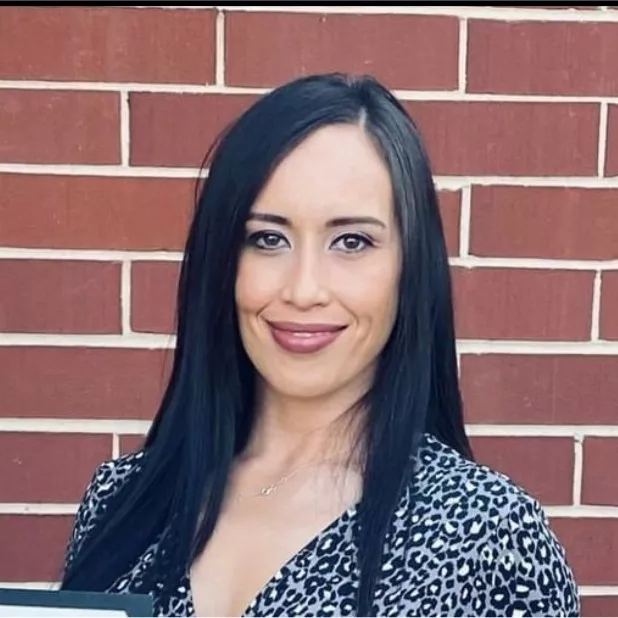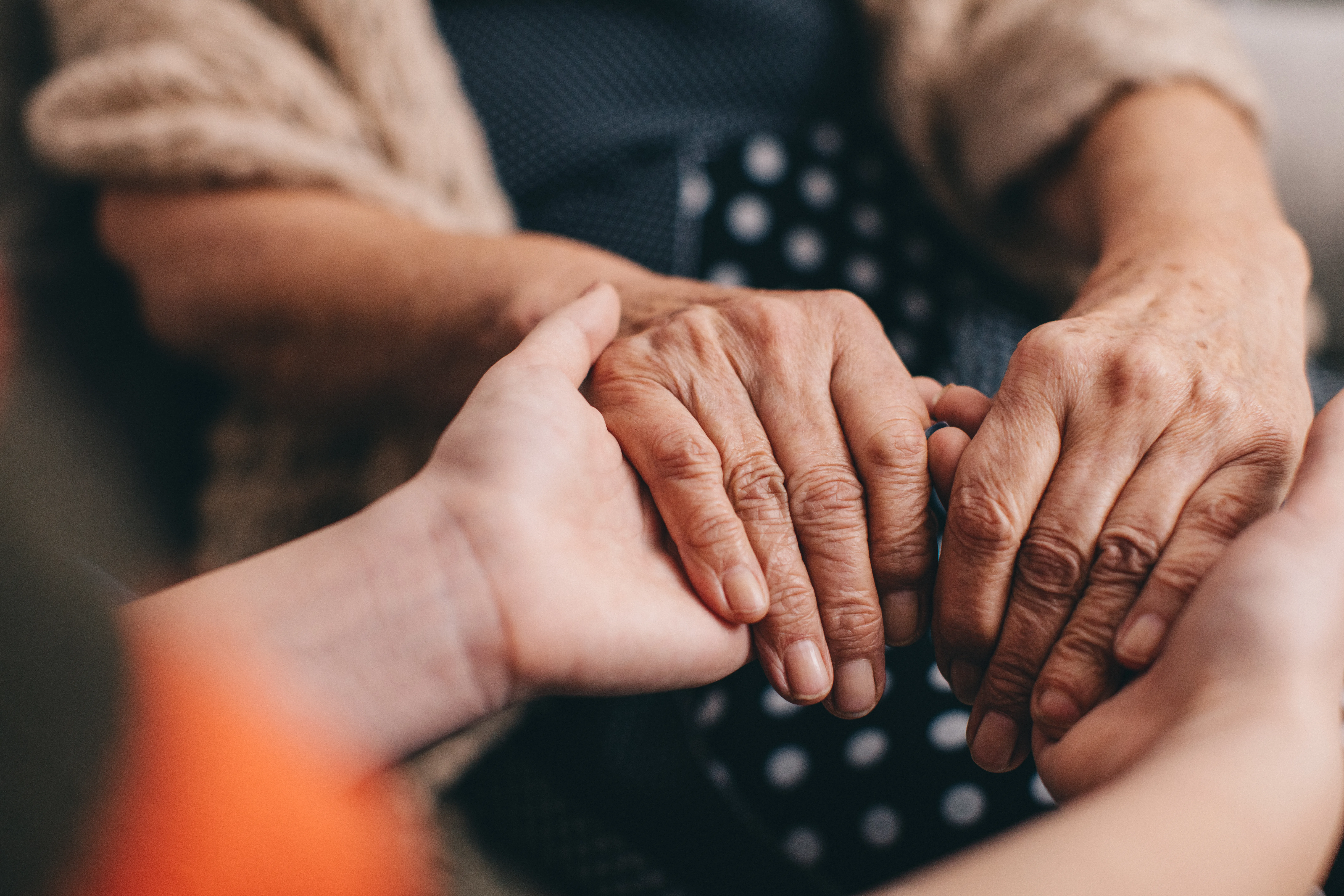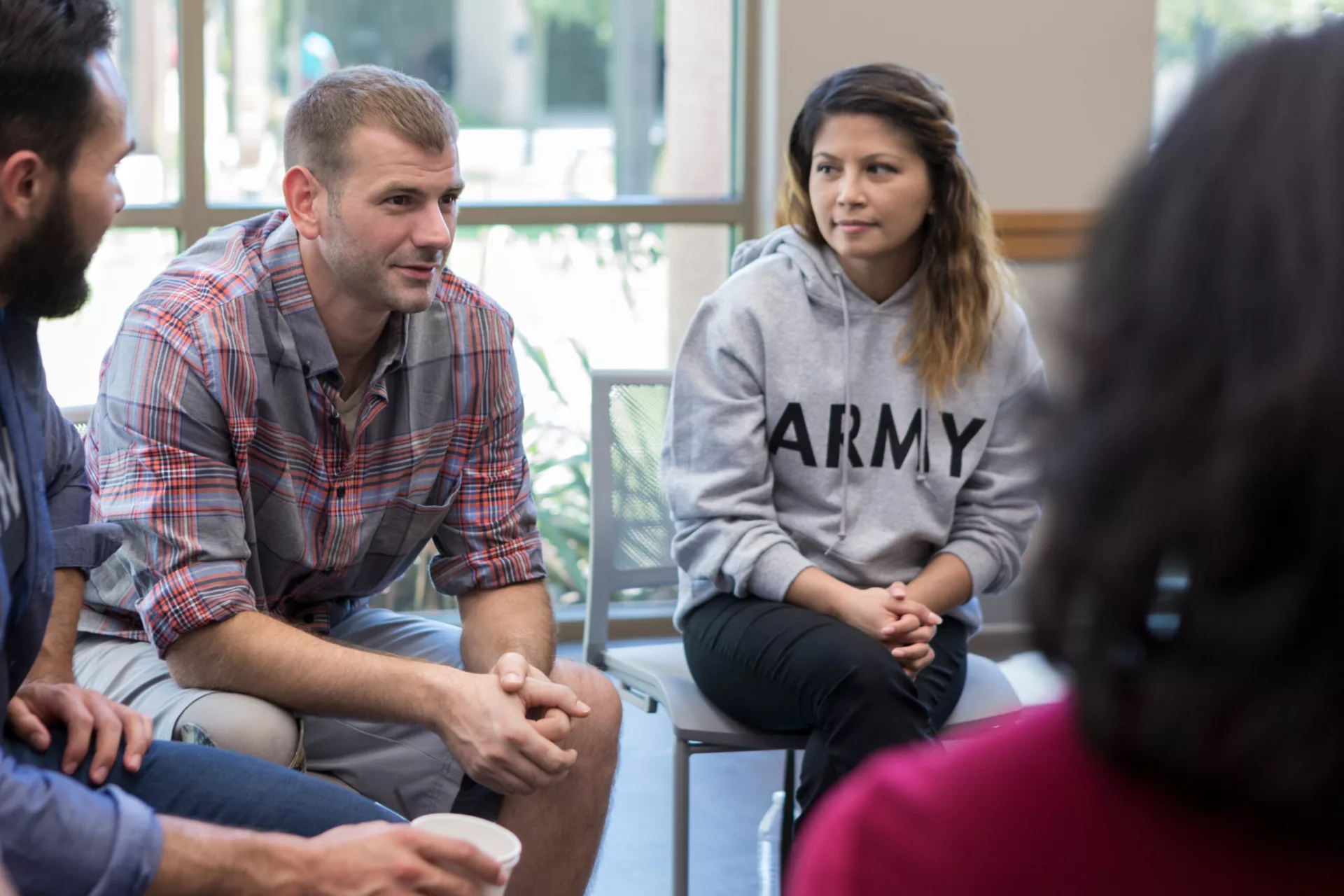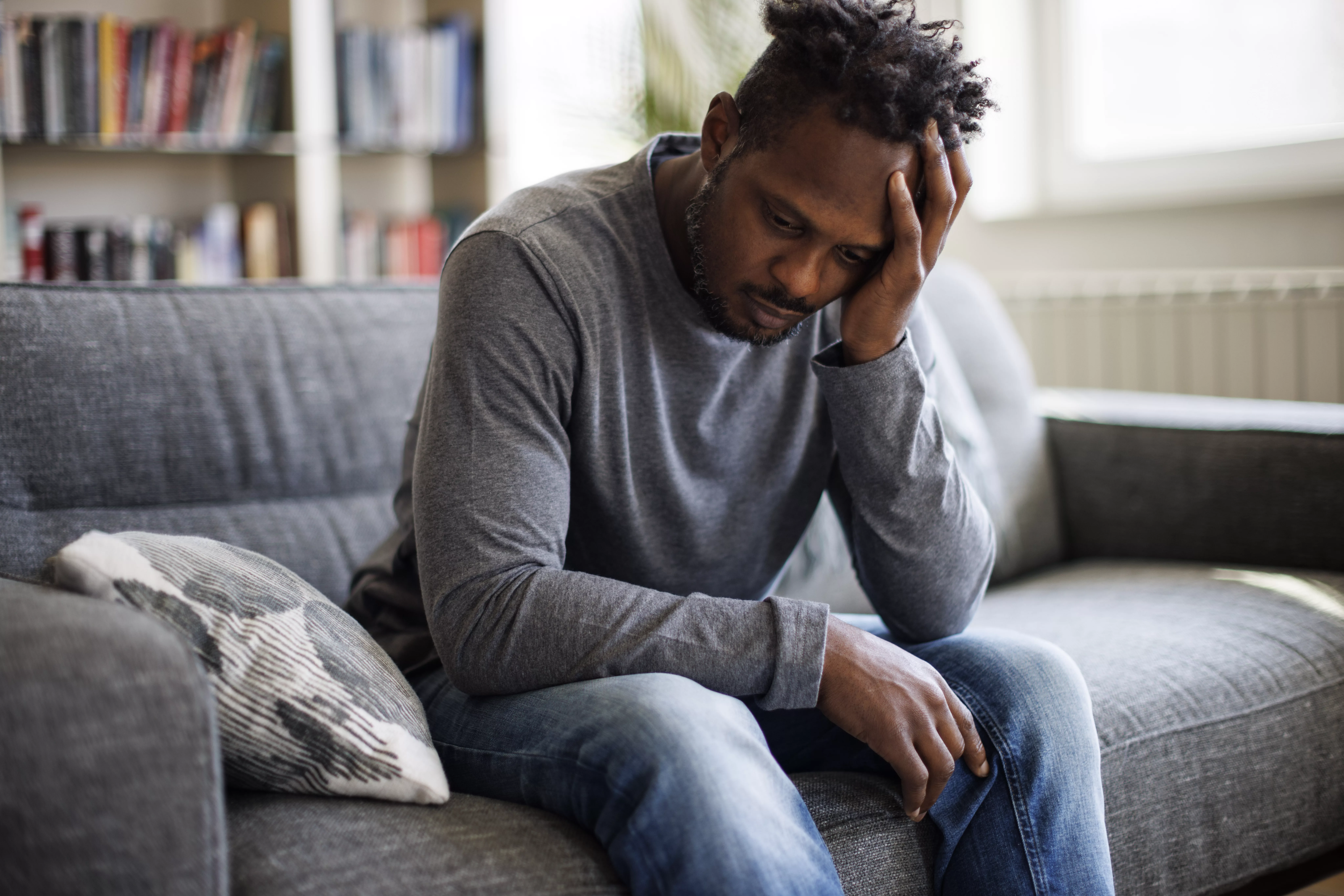
National Recovery Month — Samantha Laughlin’s Story
September marks National Recovery Month. This national observance promotes and supports new evidence-based treatment and recovery practices. During National Recovery Month, we also celebrate all individuals in recovery, the treatment service providers and the individuals who make recovery possible.
In honor of National Recovery Month, Bluff’s Clinical Liaison, Samantha Laughlin, CAC, CAMS, CPS-AD, shares her personal story. Through her own experiences and her career trajectory in treatment, Samantha has found a passion for supporting other women in recovery.
Tell us your story.
I’m the youngest of six half-siblings — the “love child” between my mom and my dad. Gambling and drug addiction ran in its course in my family. As a result, we lost our family business and had to file for bankruptcy when I was 12. I was taken out of private school and put into public school. It was a culture shock. I remember feeling abandoned and rejected because my parents would go out to the casinos to gamble on the weekends. I’d be left with my sisters to take care of me, and I felt like they resented me.
At that time, they were 15 and 16 years old and I was going out on their first dates with them. I just remember wanting to escape who I was by living through someone else, so I watched a lot of movies and theater. I remember watching a Lifetime movie at that time and there was a beautiful girl who was everything that I wanted to be. She was driven, confident, and had a lot of friends — all the things that I felt like I lacked in my own life. She also had an eating disorder. I remember thinking I couldn’t be all the things that she was without having an eating disorder. I had low self-esteem and struggled with my weight. I remember that period of time as being very hard because I was dealing with low self-esteem, an eating disorder, my family’s bankruptcy and being uprooted from my environment. At age 16, I started to be attracted to the “bad girl” life, breaking rules, hanging out with older guys and getting introduced to drugs. I tried opiates, benzos and then meth. I remember it well, because it felt like I found a solution to all of my problems. I was feeling nurtured, confident and like I had arrived. I was getting attention.
From that point, it got worse. I became a revolving door in the criminal justice system.
At the age of 17, I received my first minor possession of alcohol charge and hung it up on the wall. It felt like some sort of achievement because then I’d found my fellowship of people and belonged somewhere. Then I was indicted for second degree forgery for counterfeiting money. From that point, my addiction became worse. I was in and out of jail all the way until my twenties, usually related to drugs. I kept talking my parents into bailing me out by making promises that I wouldn’t keep.
How did recovery start for you?
The turning point came when my dad got sick and was no longer able to get me out of jail like he used to because of his various medical problems. My mom told me she wouldn’t bail me out unless I went to treatment, so I agreed. At that point, I had so many different charges that I didn’t even remember what they all were. When she finally bailed me out of Columbia County jail, they ran my name one more time after she paid the money. I thought I was all set to go home and go to treatment, but it turned out I had a warrant in another county. I ended up going to the other county and the judge declined to let me out to teach me a lesson.
I was riddled with fear and panic because I was about to go to prison. I remember praying to God for one more chance, promising to do whatever it took. At that time, I was going through some medical issues during my stay in jail and later discovered it was because I was pregnant. The judge let me out to go to treatment.
That perfect storm of events — the fear, the terror, the boundary, the threat of going to prison — was the wake-up call that I needed. After I got out, I decided that I was going to go to the Hope House, a nonprofit treatment center for homeless women and women who were pregnant.
Shortly after, I found out that the pregnancy was ectopic. That was a blessing in disguise because now I had a second chance at working on myself. I’d been in a cycle of toxic relationships. While at Hope House, I started to find friends and fellowship. I met women who had qualities that I wanted to develop in myself, like integrity, leadership and courage, and I surrounded myself with them. These qualities were mostly unfamiliar to me as I hadn’t seen them put into practice.
I started to gain confidence in myself, too. I got a job doing something that I had no experience doing: collections. The treatment center I was at held me accountable, told me “No” and put me in uncomfortable positions — things that I needed for my recovery. I was very motivated and driven and was promoted to supervisor within a year. That was a big moment for me because it was my first real sense of accomplishment. Once I had been proud of a minor possession of alcohol charge and was in the newspaper for counterfeiting money. Now, I was in the spotlight for something positive: the news wanted to share my story of recovery after I started spending some time doing what was right by volunteering at other sober living houses for women.
After a while, I returned to my previous career as a nail technician. I kept building my network of women, got a sponsor and recovery group. I just kept on doing the next right thing, being honest, helping others and working on myself. Then I got promoted to manager at the nail salon.
While amazing things started happening for me, it wasn’t all positive at the time. As I mentioned earlier, my dad was very sick. He passed away. I thought for sure losing him would send me back out. My dad had been my biggest enabler, my drug dealer and my best friend. Because of the support system that I had found in recovery, I was able to walk through that without picking up any drug or alcohol to cope.
In my recovery, I had unresolved legal problems from my addiction and had to go back to jail. The county sent a letter to the wrong address which led me to go to the same jail I couldn’t get out of when I was pregnant. At that time, I’d been doing speaking engagements and was invited to speak about my recovery story at the Department of Corrections, but had to cancel because I was actually in the Department of Corrections LOL. When I went back, the people at county had seen the work that I was doing in the community because I’d been on the news, so the judge let me out. He told me he was proud of me and that it was so good to see people who were once revolving doors in the criminal justice system changing their lives.
How did you end up working in treatment?
It all started with my passion for sponsoring other women. The first natural high that I ever felt when I was helping another woman, an alcoholic, by sponsoring her and walking shoulder to shoulder with her in recovery. That’s when I saw that I could be useful and affect people in a positive way. I decided I wanted to help people for the rest of my life. I had found my purpose. I knew the reason why I went through what I did is so that I could help other women navigate through similar situations.
At a friend’s wedding, I met the program director at Bluff, John Roshto, and asked if there was any chance that I could ever work there. He told me they were looking for a Behavioral Health Technician (BHT). I applied, interviewed, got hired on the spot and was so excited. Although I had no experience working in recovery, they mentored me and I became a group facilitator right away. During my first group, I remember I was able to be helpful to others just by drawing on my own personal experience and sharing what worked for me to maintain sobriety. Within two months of working at Bluff, John Martin (who was the Clinical Director at that time) asked me what I wanted to do with my life. He told me that I already had all the intangibles to do what I wanted. He promoted me to Case Manager for the clinical team so that I could sharpen my skills and gain the experience needed to make a great therapist. I just needed the credentials.
He encouraged me to go to college and got every certification I could for addiction and peer support. Today, I’m a Certified Addiction Counselor, Certified Anger Management Specialist and CARES. Before, I was a high school and college dropout. Today, because of my recovery, I graduated summa cum laude for social work and have two years before I finish my master’s degree. I went from BHT to Case Manager to Addiction Counselor, and everyone at Bluff supported me like family. They told me that I could do it and I believed.
Telling this story makes me kind of emotional because Bluff is my whole heart. I love everything about Bluff. They’re like my family.
Fast forward to now, I’ve been at Bluff for about four years. I was recently promoted again to Corporate Business Development and I have the privilege of being the Alumni Coordinator for Bluff. I get to play a part in people’s lives from the time they come in to Bluff to when they leave. Today, I get to help people on a wider scale by traveling and talking about Bluff and our Pyramid programs. And through our continuum of care, I’m able to stay with them along their journey to recovery.
How have mentors and peers supported you along the way?
The most precious thing that you can give somebody is your time and I felt like leadership at Bluff really did that for me. I have mentors in my life who built me up and weren’t afraid to tell me the truth even when it hurt but was going to save my life. Assertive people who believed in me, walked with me and sat with me in the dark. My network taught me how to mentor others, too — how to meet them where they are, build them up and have the love to tell them the truth and hold them accountable.
Because of the positions I put myself in, I didn’t have many positive influences growing up. Through work and recovery, God has given me people to look up to — like my sponsor, Joan — who keep on reaching for the stars. Joan doesn’t remain stagnant; she keeps seeking to develop personally and professionally. She has achieved, yet is still humble at the same time.
What wisdom would you pass on to someone pursuing recovery?
Know that you’re not alone and there are so many people out there who want to help you. Reach out. Sometimes when we’re stuck in our own heads, we can feel so alone, shameful and disgusting but Today, I know that’s not true. So, please know there are so many other people that you can identify with and relate to who can help walk you through these challenges. There is hope and if I can do it, then I believe anyone can do it.
I would also suggest finding a network of people to get sober with, people who have qualities that you would like to develop in yourself. Involvement in some sort of recovery group is important for camaraderie and connection. For me, being a part of a group was healing for me to feel a sense of belonging and find purpose in my past.
Have you discovered or rediscovered anything about yourself since starting recovery?
At first, I was ashamed of what I’d went through and didn’t want to take any responsibility. Now, I see that my past experiences are my biggest assets today, because I’m able to reach other people in ways that other professionals who haven’t been there can’t. I’m an addict and because of that, I’ve found friendships and am about to be married this year to an amazing man who is healthy. We have a wonderful life. I got engaged in Paris at the Eiffel Tower and there was a time when I wasn’t able to leave the state. . Since reframing my past as an asset, I don’t have any regrets. I know that where I am today is a direct result of where I’ve been.
What do you like to do in your free time?
I’ve been sober for eight years and no matter what I’ve got going on in my personal life, I always make sure I take one day a week to meet with other women, step outside of myself and try to be helpful to them. I also meet with the people I’m mentoring every week at the same time.
Other than that, I travel all over the country with my fiancé to discover places I’ve never been before, like New York. We go to the movies and go on a date night every week. I also like to do trips with the women in my network. We go on 5Ks or hiking trips every year and hold events celebrating each of us like baby showers, bridal showers and bachelorette trips.
If you could go back in time and talk to your younger self, what would you say?
I would want to offer some hope for the future, to tell her that she is loved and valuable and while she might not see it now, she will see it one day. I would tell her that she is loved and valued just the way she is. While she might not see it now, she will see it one day. I would say that it gets better and to hold on because this will all make sense one day.
What’s one thing most people don’t know about you?
Not many people know that I have a secret passion for the fine arts, like singing, acting and dancing. After I switched from private to public schools when I was 12, I got into a fine arts magnet high school. That’s where I fell in love with acting and singing. I discovered that I enjoyed it, I was good at it and I joined a modeling agency with the hopes of becoming an actress on TV and performing in musicals.








